Level 3 Food Hygiene and Safety in Retail
Quantity: 1

Duration 8-10 hours
Last audited 6th March 2025
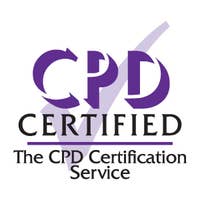
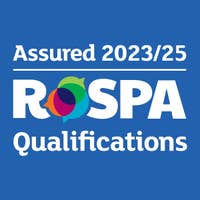
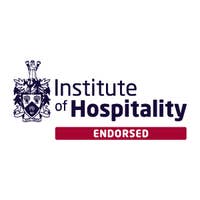

100% online training
Start when you like
Learn on any device (desktop, mobile or tablet)
Instant assessment and result
1 learner per course
Train teams of all sizes
Bulk discounts starting at 10% off 10 courses
Pay by invoice with 30 day payment terms available (5+ courses)
Includes a 10% discount for 10+ courses
If you are a manager or supervisor in a food retail establishment, then you have an important role to play in promoting food safety legislation in the workplace and encouraging other staff members to follow good hygiene practices. By law, all food handlers must be appropriately trained, and this Level 3 course aims to help managers and supervisors understand their essential day-to-day responsibilities, including how to implement the basics of a HACCP food safety management system.
The course provides knowledge of food hygiene practices and legal responsibilities and gives further detail on the controls that can be implemented to ensure that the food handling process is as safe and hygienic as possible. The course uses a variety of written text, interactive exercises, video content, and downloadable resources to provide learners with up-to-date knowledge of how to comply with, and uphold, food safety law.
100% online training
Access anywhere
Same day digital certificate
Printed certificate posted next working day
Full audio voiceover
Assessment retakes at no extra cost
Meets UK and EU legal requirements for food handlers
Accepted by Local Authorities
Accredited by CPD, assured by RoSPA Qualifications and endorsed by the Institute of Hospitality
EHO approved training
Bulk discount for orders of 10+ courses

Save on our courses when you buy more training upfront. Lock in a better price now and access the training whenever you need to. You can mix and match any of our courses too and get the discount off your whole order.
10+ courses = 10% off
50+ courses = 20% off
100+ courses = 30% off
500+ courses = 40% off
By the end of this course learners will:
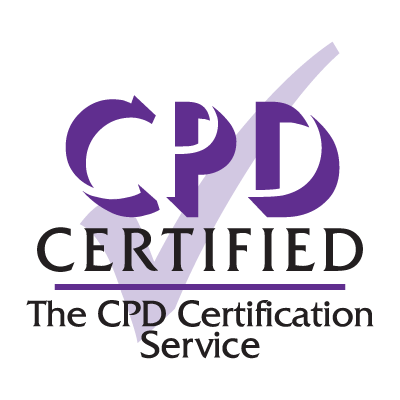
Accredited by CPD
All of our courses are accredited by the CPD Certification Service as conforming to universally accepted Continuing Professional Development (CPD) guidelines.
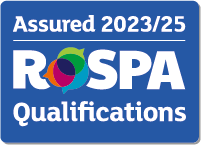
Assured by RoSPA Qualifications
This course is also assured by the Royal Society for the Prevention of Accidents through their RoSPA Qualifications Assurance System, as providing up-to-date, quality and content-approved training.
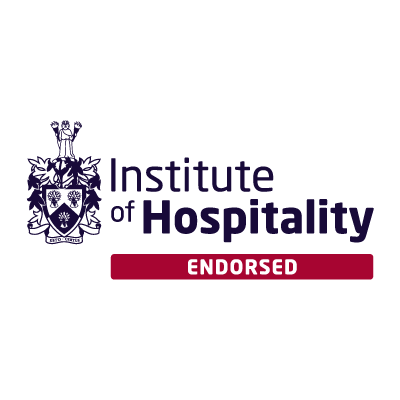
Endorsed by the Institute of Hospitality
Additionally, this course is endorsed by the Institute of Hospitality as providing independently-evaluated, quality content that teaches good practice standards.
Recommended renewal:
3 years
What does this mean? This certificate does not have an expiry date, however, based on industry best practice guidelines there is a recommended renewal period.
Our in-house Learning Designers develop all of our courses to give you and your learners the most engaging training possible.
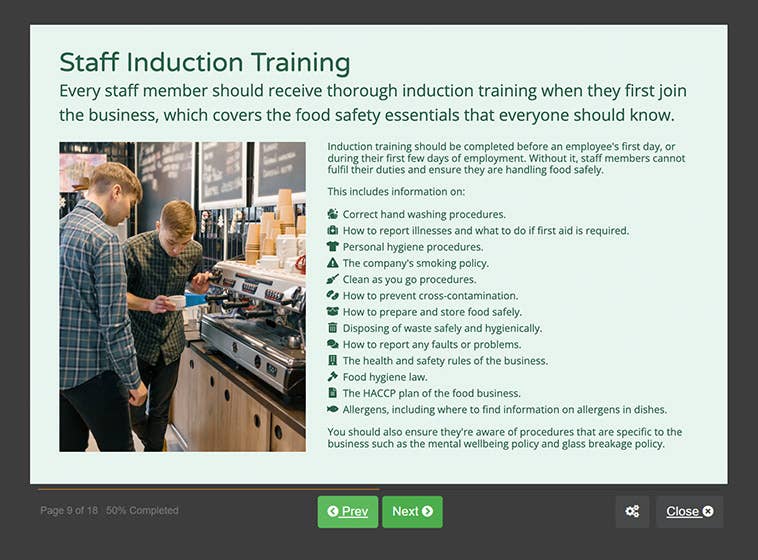
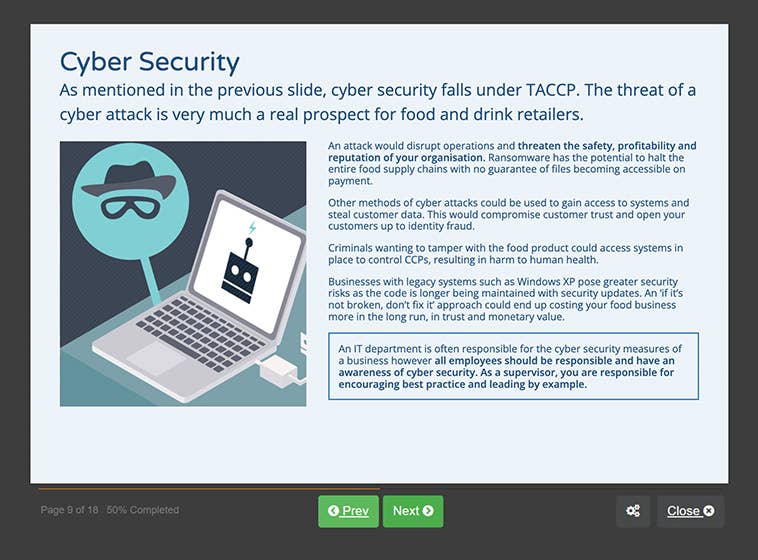
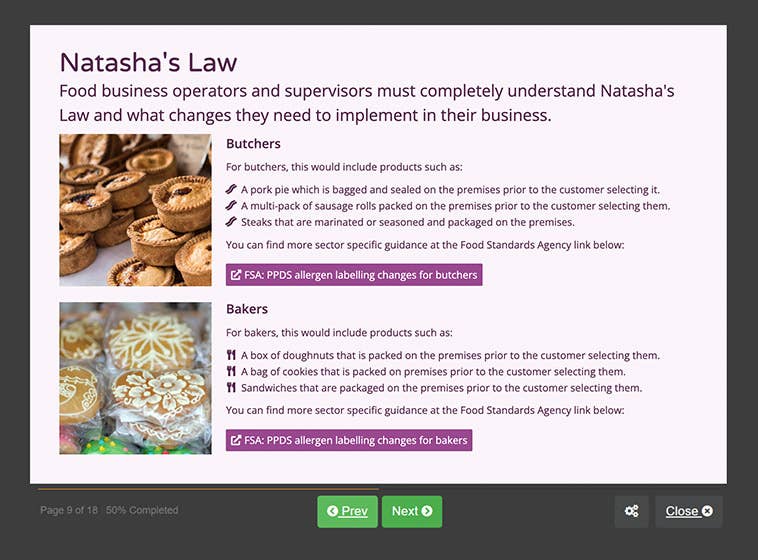





Over 2 million cases of foodborne illness occur in the UK every year. The risk of illnesses from food increases when workers involved in the preparation, handling and serving of food do not have the information or training necessary to enable them to work safely and hygienically.
Food businesses have a legal responsibility to protect consumers from food that is damaging to health, from receiving food that is not of the nature, substance or quality which consumers expect and from food that is labelled, advertised and presented in a way that is false or misleading. Failure to comply with your duties and responsibilities as a food business may result in action being taken against you by the Food Standards Agency (FSA) or other enforcement agencies. By completing our Level 3 Food Hygiene and Safety in Retail training course, food business owners, managers and supervisory staff will learn how to comply with food safety legislation and develop advanced knowledge of food hygiene principles and best practice procedures. The course will explain senior responsibilities, how to implement a food safety management system and how to maintain high standards to ensure safe and hygienic food handling.
Employees in non-senior roles involved in the preparation, handling and serving of food can be at risk of causing foodborne illnesses if the risks are not managed effectively. Food businesses must provide employees with information, instruction and training suitable to the work that they are carrying out. This will ensure that they understand the food safety legislation and practices in place, helping to protect the health and safety of themselves and others. Level 2 Food Hygiene and Safety for Retail training would be more appropriate for non-senior staff who have no supervisory duties.
Key terms, why is food safety important?, which foods cause illness?, who is most at risk?, roles of responsibility.
Food hygiene and the law, food safety management systems, enforcing the law, working with authorised officers, notices, fines and prosecution, due diligence, supervisor responsibilities, investigating outbreaks of food-borne illness.
Physical contamination, the 6 Ps, controlling physical contamination, detecting contaminants.
Chemical contamination, acrylamide, scombrotoxic food poisoning, poisonous ingredients, metals, mycotoxins, food safe packaging, chemical food poisoning, controlling chemical contamination.
What is a food allergy?, anaphylactic shock, the 14 named food allergens, allergen labelling laws, Natasha’s Law, allergenic cross-contamination, controlling allergenic contamination, allergen policy, allergens and food deliveries, allergens in food distribution and storage.
Why is microbial contamination a risk?, food spoilage, bacterial growth, bacterial spores, toxins, cross-contamination, controlling microbial contamination, cooking instructions.
What is food poisoning?, Salmonella, Clostridium perfringens, Staphylococcus aureus, Bacillus cereus, Escherichia coli (E.coli), Clostridium botulinum, food borne diseases, Campylobacter enteritis, Escherichia coli 0157, Listeriosis, Typhoid and Paratyphoid, Dysentery (Shigella), viral contamination.
Food deliveries, reputable suppliers, traceability, stock control, use by dates, best before dates, food storage, food service and display, types of food preservation, methods of preservation.
Safe temperatures, fridge temperature, freezer temperature, seasonal weather, cooking temperature, reheating food, cooling food, cold and hot holding, cook-chill, cook-freeze, measuring equipment, how to take food temperatures, taking food temperatures correctly, air temperature.
The principles of design, suitable workplace materials, lighting and ventilation, utilities, work equipment, fixtures and fittings, food storage areas.
Storing waste, waste removal, waste review, benefits of cleaning, supervising cleaning, types of cleaning, six stages of cleaning, cleaning chemicals, cleaning work equipment and surfaces, cleaning schedules.
Pest control and the law, common pests, stored product pests, animal pests, controlling pests, environmental, chemical and physical controls, pest control documentation.
What is HACCP?, prerequisite procedures, the 12-step process, TACCP & VACCP, the 12-steps and 7 principles of HACCP, recording and labelling.
Why is personal hygiene important?, upholding and monitoring standards, standards of personal hygiene, handwashing, skin infections and wounds, sickness, returning to work, protective clothing, hair, jewellery and perfume, smoking and eating at work.
Why is training important?, levels of training, staff induction training, on-going training, staff training records, food safety culture and whistleblowing, the role of management.
Once you have completed all of the online training material you will be able to take the online assessment. The assessment consists of 45 multiple choice questions with a pass mark of 80%. The answers are marked instantly so you will know whether you have passed as soon as you finish.
If you don't pass the assessment you can review the course material and take the assessment again as many times as necessary at no extra charge.
This Level 3 Food Hygiene and Safety in Retail course is suitable for managers and supervisors in all types of food retail establishments, including market stalls, farm shops, grocery stores, supermarkets, butchers, bakers, fishmongers, wholesalers and delicatessens.
Regulation (EC) No 852/2004 on the hygiene of foodstuffs states that food handlers must be trained in food hygiene matters ‘commensurate with their work activities.’ This course ensures that you comply with this regulation by providing learners with detailed knowledge of food safety principles. It gives instruction on how to promote best practice in the workplace and explains the basics of implementing an effective food safety management system based on the principles of HACCP.
If you are a food handler below the level of manager or supervisor then our Level 2 Food Hygiene and Safety for Retail course is designed for your requirements.
Unsure which Food Hygiene course is right for you?

In partnership with
Paul Turner
Senior Environmental Health Officer
Paul Turner is a Senior Environmental Health Officer at North Yorkshire Council with a great passion for the highest standards of food safety. As well as holding a degree in Environmental Health and a HND in Applied Science (Biology) Paul has completed the following: Certificate of Registration with Environmental Health Officers Registration Board, Assessment of Professional Competence (CPD), ISO 9000:2000 Lead Auditor qualification and has Chartered status from CIEH.
Paul has 30 years of experience in the sector working for local authorities and is on the Food Standards Agency’s (FSA) working group and is a Local Authority member of the FSA group contributing to their Register a Food Business (RAFB) service.
Paul is an experienced public speaker on food safety who has developed and delivered training on behalf of the Food Standards Agency and others in the sector as he continues his drive to ensure the highest standards of food safety.